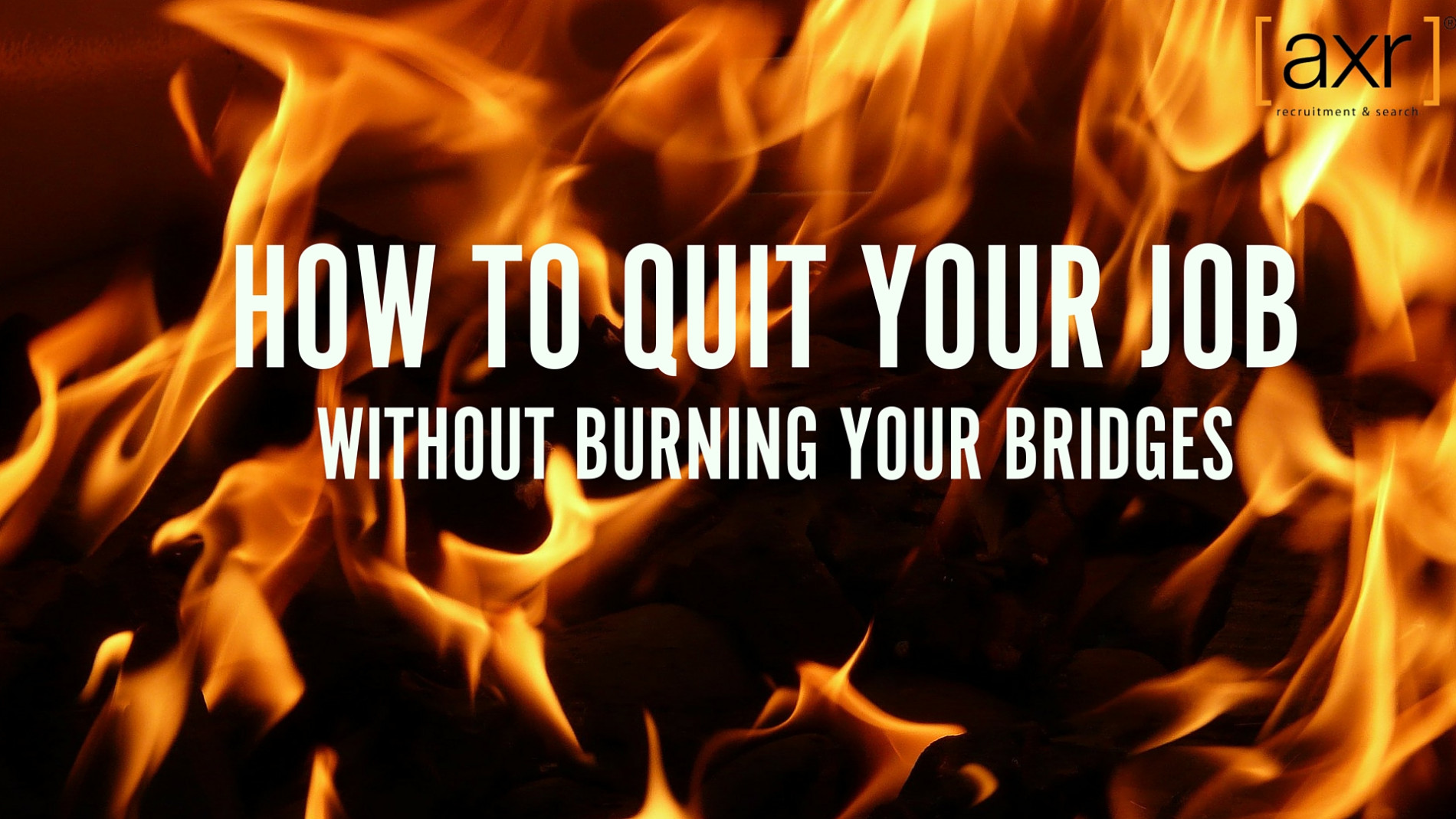We have all been there before – QUITTING our job. Either we have accepted another offer and will be resigning to take on board a new challenge, or we have made the decision to resign without another job to go to because we are unhappy. Whatever the motivation, many employer/employee relationships seem to go awry when employees decide to leave.
Resigning can be a minefield that is not easy to navigate. In some cases, the timing of your departure might not be ideal for your team or company. There may be a conflict with your new role or who your new employer will be and many feel this is a great opportunity to provide some feedback, constructive or otherwise, to your current employer.
What is the right way to quit your job without burning your bridges?
What to do:
- Resign in person with a signed resignation letter and follow up with an email.
- Thank the company for the opportunity, compliments are free and go a long way. Keep them genuine though. There is always something positive, sometimes you may need to think a little more creatively, but as the old adage goes “if you don’t have anything nice to say…..”
- Give 110% on the way out. This will be hard but it will be noticed. It’s 1 – 4 weeks of your life and it’s a great way to show true character and great professionalism.
- Be transparent and honest about your plans. With modern technology and social media platforms like LinkedIn, you are only an update away from everyone in your network finding out anyway.
What NOT to do
- Resign via email, it’s unprofessional and disingenuous. Own your decision and have the gumption to do it face to face.
- Don’t take POT SHOTS. Don’t provide negative written or verbal feedback where a more formal format is suitable. This also includes informal feedback over a coffee/wine (especially the wine) with your peers. They will no longer be your employer. If you felt that strongly about an issue the time to provide feedback was when it occurred. Sniping on the way out, regardless of the internal politics, only has downside so look FORWARDS NOT BACKWARDS!
- Exit interviews – be very careful. These are a formal opportunity to provide balanced, professional and constructive feedback. Try to focus on the positives and ways to improve things before giving negative criticism if you have any. When resigning it’s not about why you resigned it’s about the next opportunity.
- Don’t leave your ex-employer in the lurch. If you are mid project do your best to finalise the project. At least have a strong handover prepared before you leave or document processes to facilitate your transition out of the business.
In our increasingly connected world, six degrees of separation no longer exists. New and old colleagues, employers and referees are all just one click away from you (and from each other) which can be a blessing and a curse. This makes it extremely important to ensure you don’t burn your bridges and you do keep your network intact.
Basically, as long as you are honest, professional and courteous in your exit from a business you can ensure that you maintain and build on that network for the future. Quitting your job doesn’t have to a stressful, destructive process and hopefully, it will allow you to recharge your batteries a little before the next chapter in your life.
How you start and end any professional relationship is extremely important. What do you do to ensure you transition out of a job correctly?
We would love to hear your thoughts. Feel free to comment on our LinkedIn, or Twitter or register to receive monthly via email.

